Royal Mail’s video game stamps are released this week – here’s how the set was put together.
The announcement recently that Royal Mail would be commemorating classic British video games drew a rapturous reception – but how do you celebrate 40 years of UK gaming in just eight stamps? And how are special sets of stamps like these designed and put together?
Those in the know are Sam Dyer, creative director behind retro game title publishers Bitmap Books, and Jamie Ellul of Bath agency Supple Studio. One is a gaming and design guru – who’s given us a beginner’s guide to the games you can read here or below – and the other a guru in design (if not quite gaming.)
“My gaming knowledge doesn’t go much beyond having a ZX Spectrum 48K and losing most of my waking life to it as a nine-year-old,” Jamie reveals by email. “Then the Commodore 64 gave me an unhealthy obsession with Street Fighter 2. Normally when we work on stamps we try to find an expert or two on the subject who we can check things with – but this got taken to another level with Sam as he has the encyclopaedic knowledge paired with a design eye.”
Anyone familiar with Bitmap Books will know what Jamie means, with its luscious library of books celebrating the history of classic consoles and box art, as we explored last year with Sam.
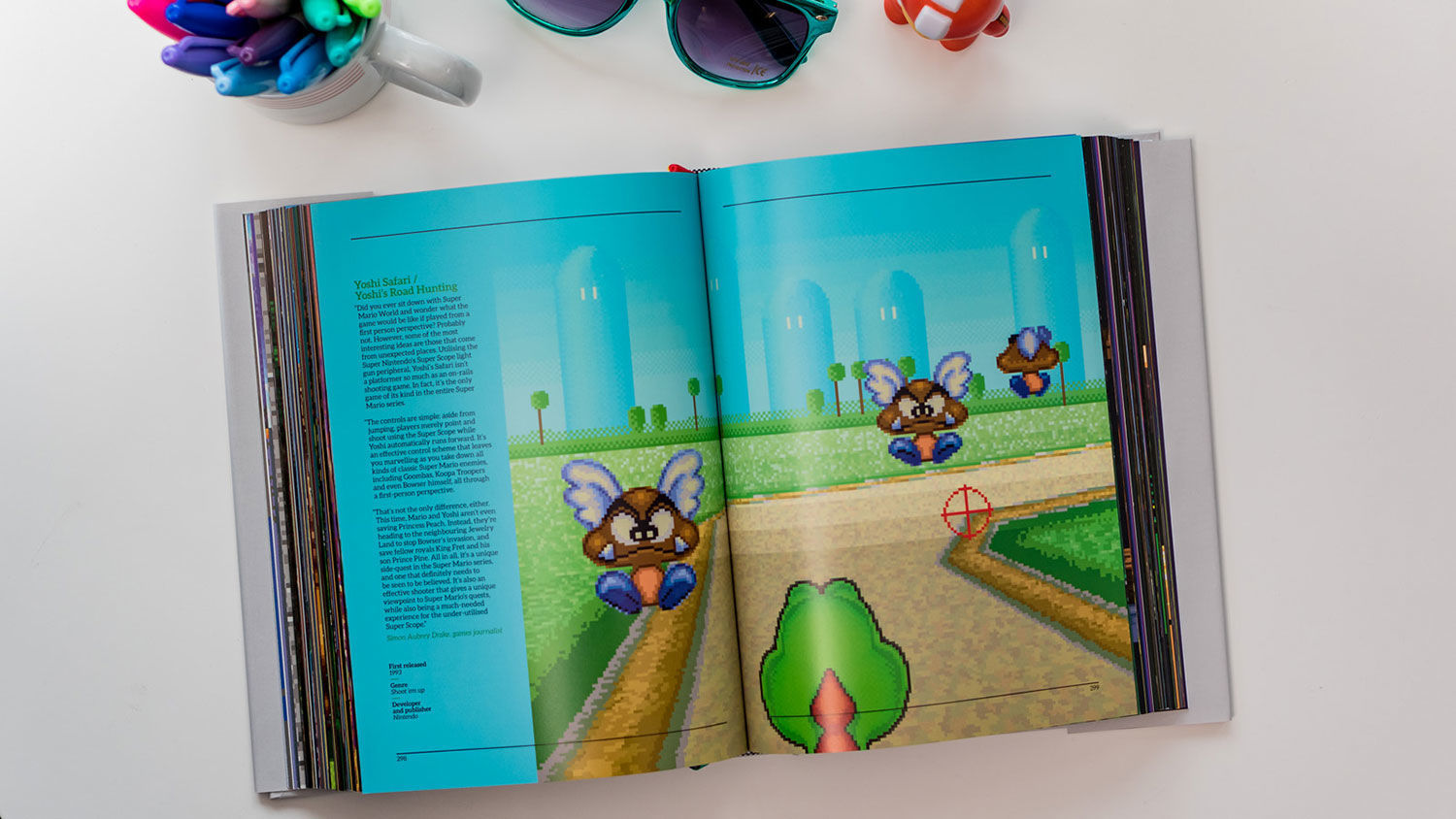
Interestingly, both men have known each other since art college, and share the same studio space in Bath. When Royal Mail approached Supple Studio to celebrate the ’80s and ’90s heyday of British gaming in the form of a special stamp issue, collaborating was a no-brainer.
“The brief was fairly open at the concept stage,” says Jamie, “so for the miniature sheet we explored use of games packaging, different British consoles and other themes before settling on Tomb Raider as a final theme.
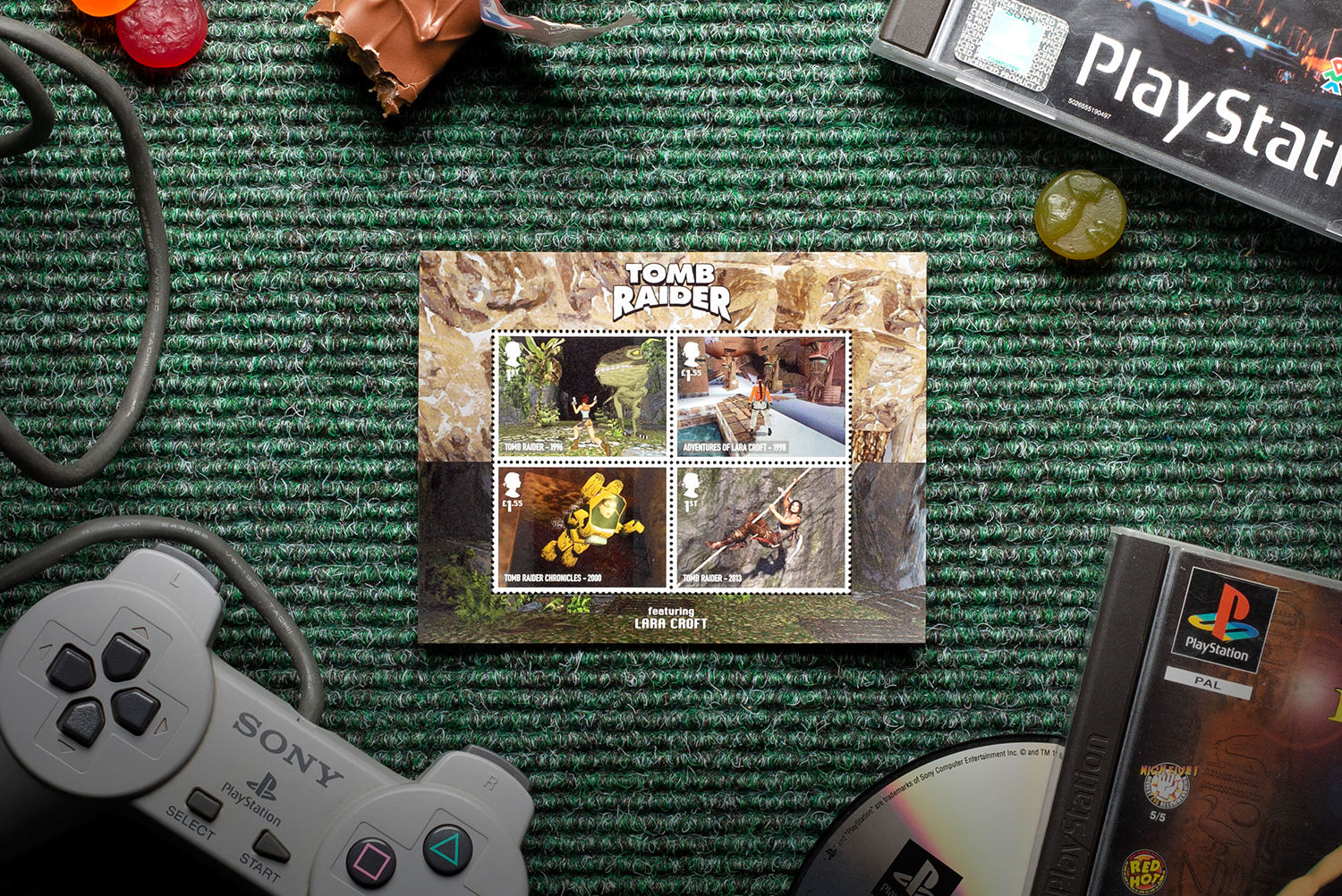
“For the main set we had around 10 different concepts in the initial stages which Royal Mail edited down to three routes which were presented to the Stamp Advisory Committee (SAC).
“Then the three of us worked together on the collector’s products (first day cover, collector’s pack, special edition tin etc) which told the story behind each game and the UK scene of the time.”
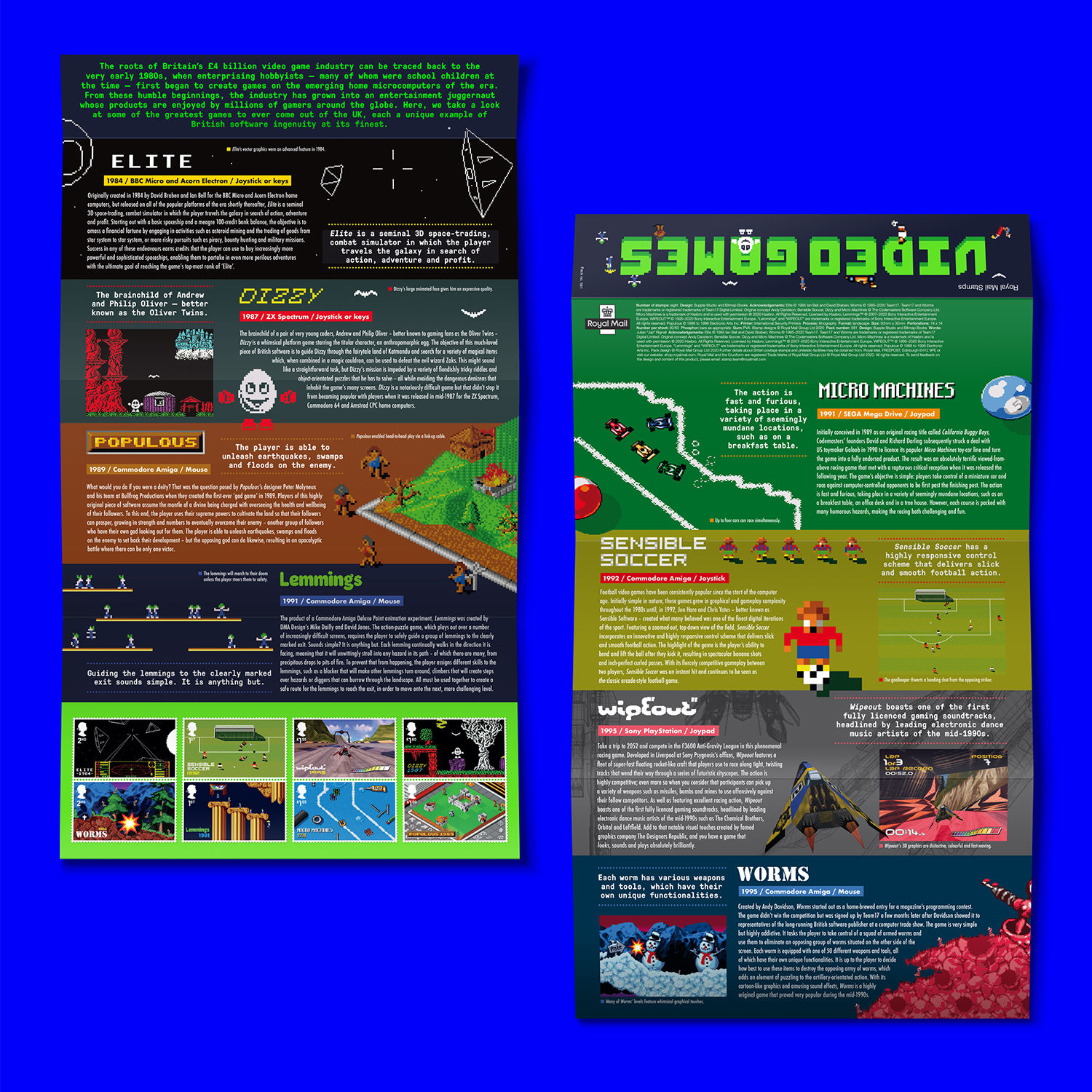
“(These) stamps will confirm how culturally significant the games and the British games industry is,” Sam hopes. “Gaming is often ignored and gets a bad press, so to see it celebrated like this, in the mainstream, is totally amazing.
“Most of the games were created by kids in their bedrooms – it’s a wonderful story that deserves to be told.”
Start Game
Putting the stamps together was far more difficult a case than finding archive promotional material or using graphics from game cover art. The creatives parsed through countless screenshots for each title, classics of British gaming like Worms and cult racer Wipeout.
“We had literally hundreds for each game,” Sam reveals. “Supple Studio are experts at stamp design so I learnt a lot from their experience. What works in your head often looks rubbish small on a stamp. There’s a real art to choosing the exact right image.”
“I’ve been working with the Royal Mail design team since 2002, so have a good grasp over what works and what doesn’t,” Jamie adds. “Mostly it’s about keeping it simple – when it looks like the image was commissioned for the stamp then you’ve nailed it.
“The final set looks fairly effortless which belies the endless trial and error of trying out different screen grabs.”
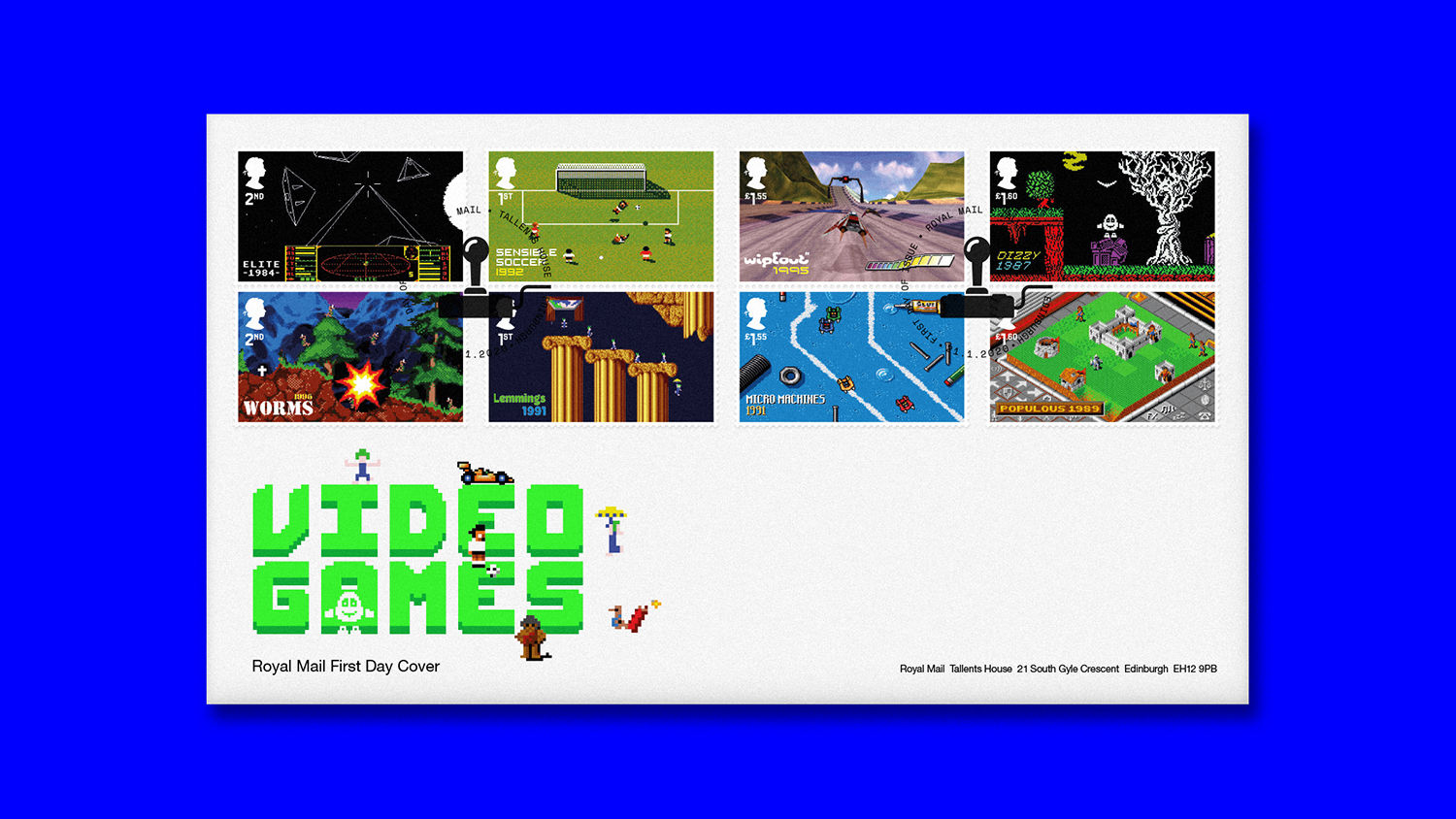
Don’t feel too sad though, as to get those screen grabs required lots and lots of good old-fashioned gameplay.
“All the screenshots were taken using a PC running emulators which ‘emulate’ the original system,” Sam continues. “From here, we could play through the games and take multiple screenshots at key moments.
“The screenshots were then enlarged in Adobe Photoshop and manipulated where necessary to accommodate the various graphics such as the Queen’s head and value.
“We also worked with a guy who was an expert in ripping assets from games such as fonts, which were then used as the game titles where possible.”
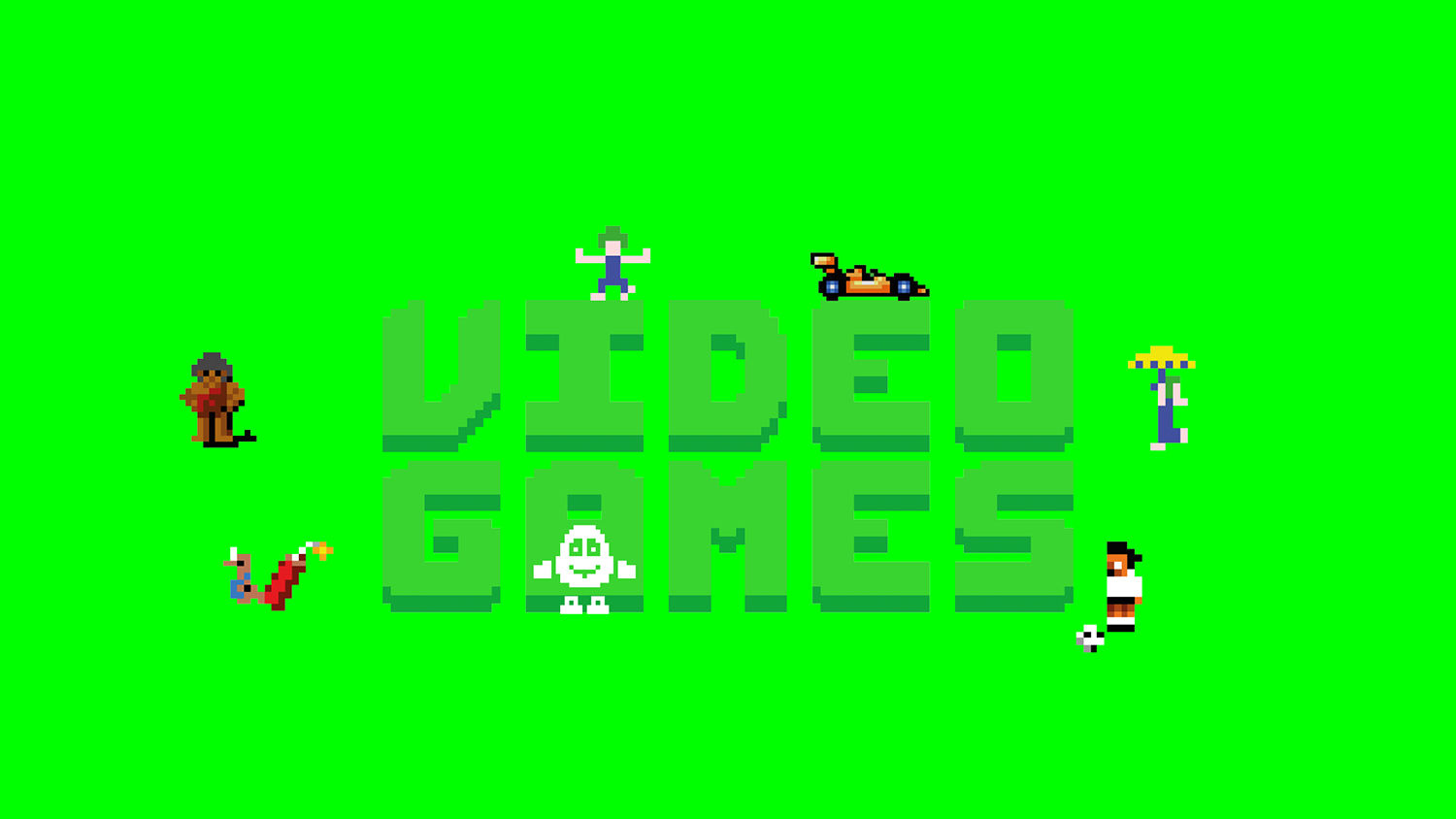
Harder than getting the right shot was whittling down the longlist to eight titles.
“We started off by sharing a list of suitable games with Royal Mail and from that, they chose the final selection,” says Sam. “The choices were made with factors such as licensing ease and how the game would work as a stamp aesthetically .”
Of the games missing from the final shortlist, the Bitmap boss feels a pang of regret for 1983 platformer Manic Miner, BBC Micro shooter Jetpac and the cutesie game Banjo Kazooie, originally released on Nintendo 64 in the late ’90s.
Of those chosen, 1992’s Sensible Soccer is his absolute favourite. “I spent an unhealthy amount of time playing that game as a kid!”
Game Over
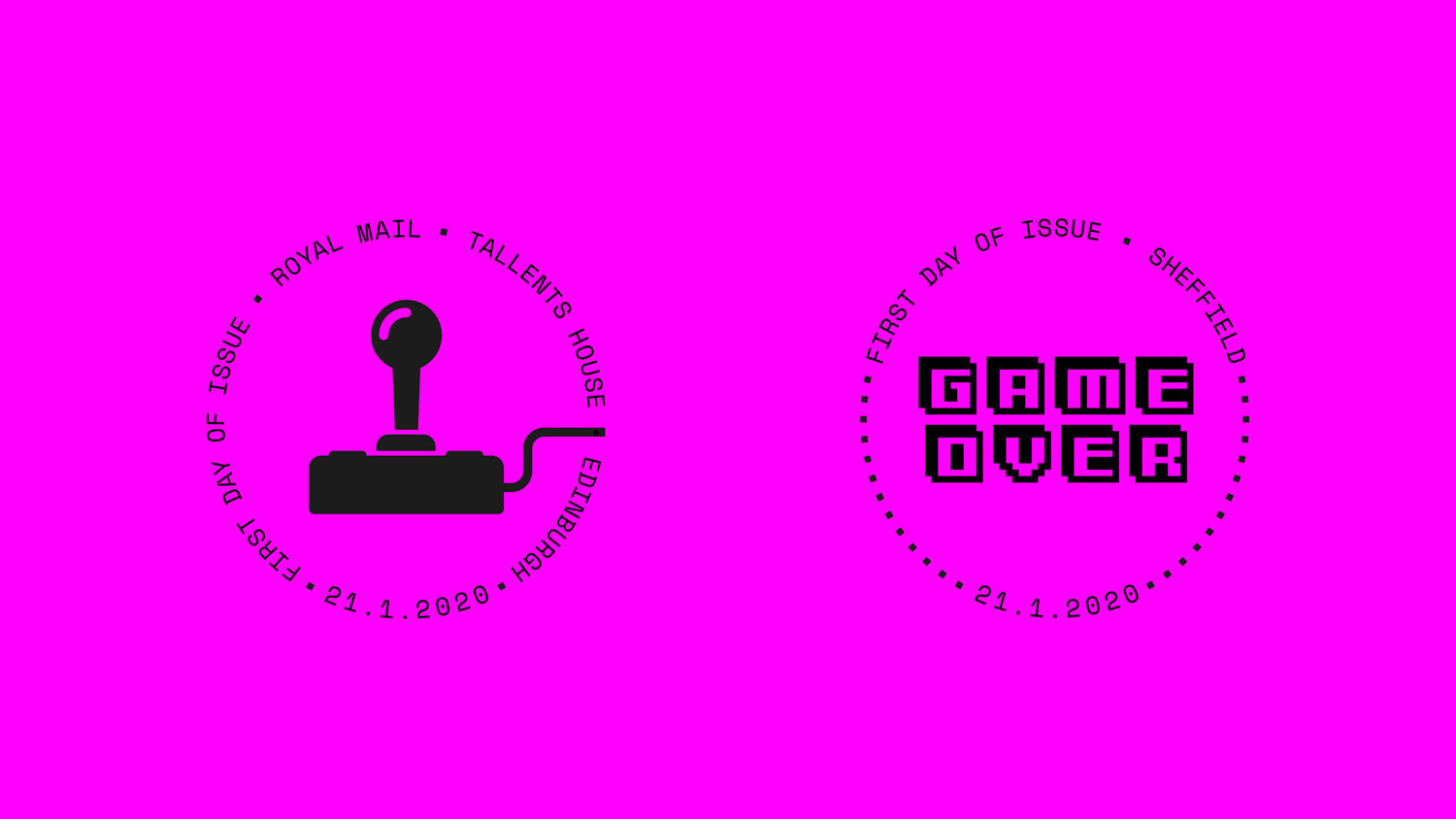
With all of Jamie’s prior Royal Mail projects, it’s undeniably the gaming stamp set which has caused the most stir.
“I’ve never seen such a reaction as we’ve seen with Video Games,” he tells me. “When we were designing them we knew they’d tap into a nostalgia that people feel towards the games – but just how much people love the games (and therefore the stamps) has been quite astounding.
“I just can’t wait to send a letter with a Sensible Soccer stamp on it. I’m tempted to start sending hardcopies of invoices to all of our clients just as an excuse to send more mail…”
For Sam meanwhile this was “a complete dream job,” as he explains.
“To work on something like this, with your old college buddy was amazing. Seeing the reaction online when they were announced blew me away, especially the original creators who knew nothing about the project but woke up to see their game on a stamp. Priceless.”
Best British Games of the 20th Century
Sam Dyer’s beginner’s guide to the classic UK games celebrated by Royal Mail’s special stamp set.
Elite
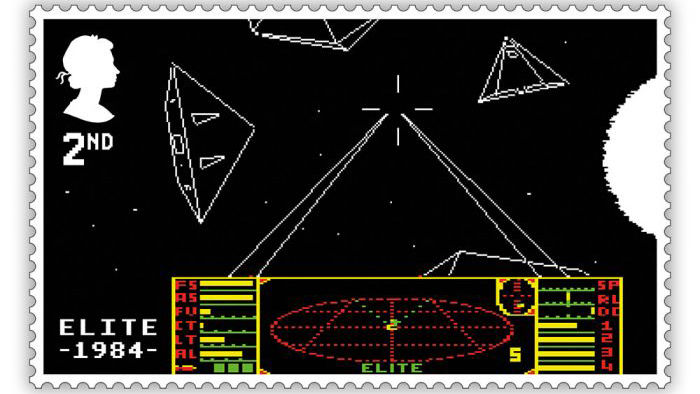
The BBC Micro is as British as fish and chips. It was in most schools during the ’80s and its killer app was Elite.
A sprawling space simulation that defied the logic of the BBC Micro should have been impossible to do. I remember playing Elite at break times and being wowed by its vector graphics.
Dizzy
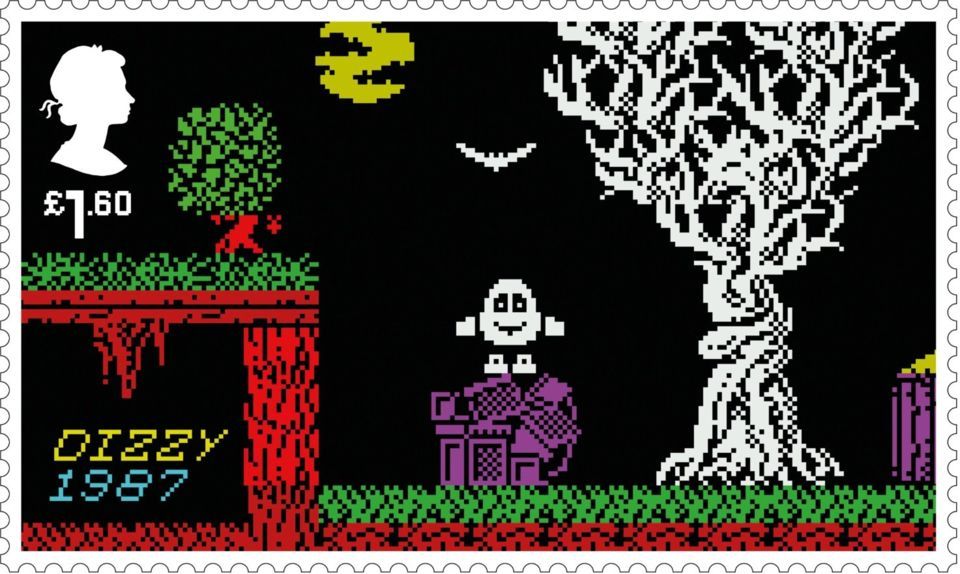
The Dizzy series of games gained a cult following during the ’80s and ’90s. At £1.99, they represented great value and hours of gameplay.
I was a huge fan of Dizzy adventure games and loved the challenge they offered with the logical child-friendly puzzles.
WipeOut
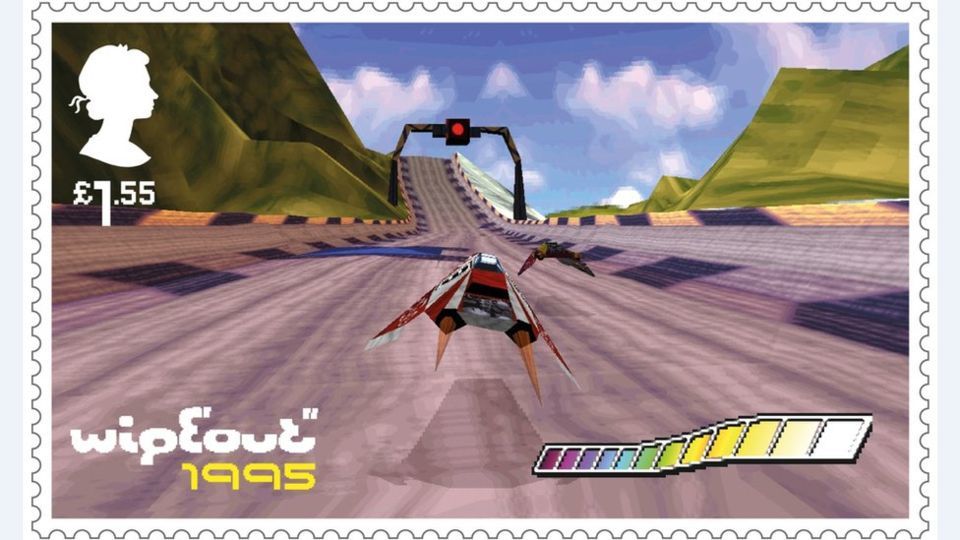
I remember getting the Sony PlayStation in 1996, and coming from the Commodore Amiga, I couldn’t believe the stunning 3D graphics.
Gone were the days of chip music; you could now have CD-quality sound and WipeOut took full advantage by including tracks by mainstream dance acts such as The Chemical Brothers. This and the fast-paced racing was a real game changer for gaming.
Oh, and they also had Design Republic do the graphic design which added an extra layer of ‘cool’.
Worms
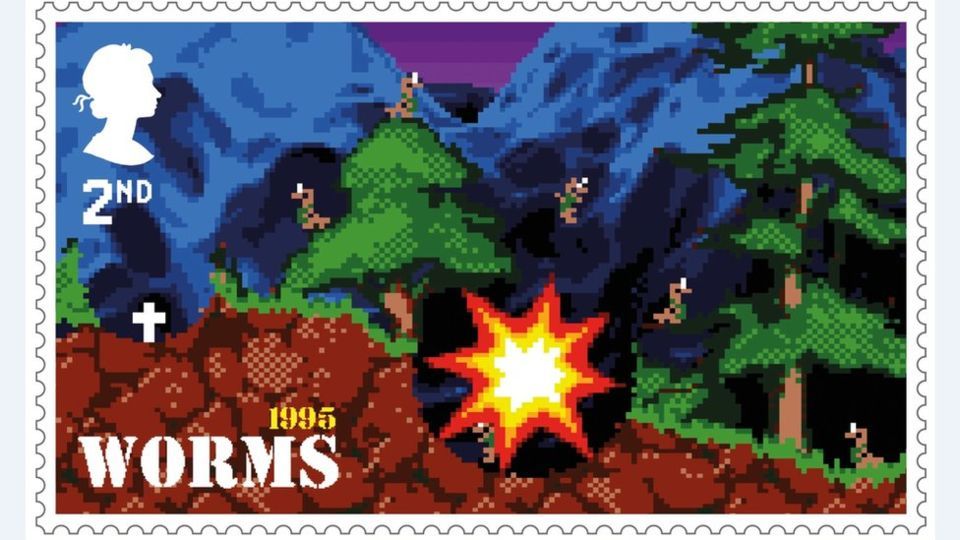
I used to play Worms with my father and it’s the only game he still remembers to this day. Trying to kill opposing worms with oversized bazookas and dynamite ensures complete over-the-top carnage.
This turn-based strategy game has spawned tons of sequels and has graced pretty much every system, from the Amiga to the Apple iPhone.
Lemmings
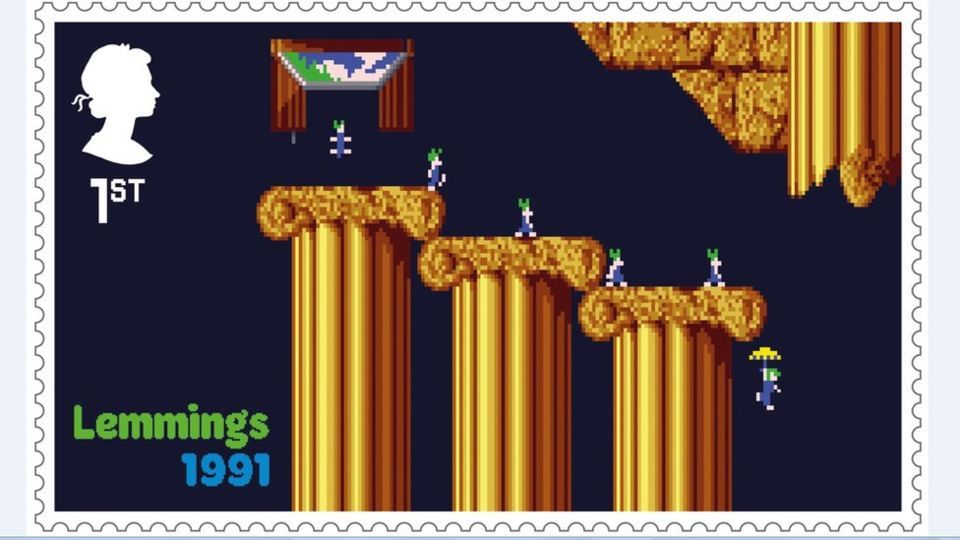
This was the game that made me want an Amiga. My friend had the Amiga 500 and we used to play Lemmings all the time and I was hooked on the challenging gameplay which saw you use the mouse to strategically get the lemmings safely to the exit.
I begged my parents and after 12 months of saving up doing a Sunday paper round they made up the rest and I had my Amiga. What a day that was!
Micro Machines
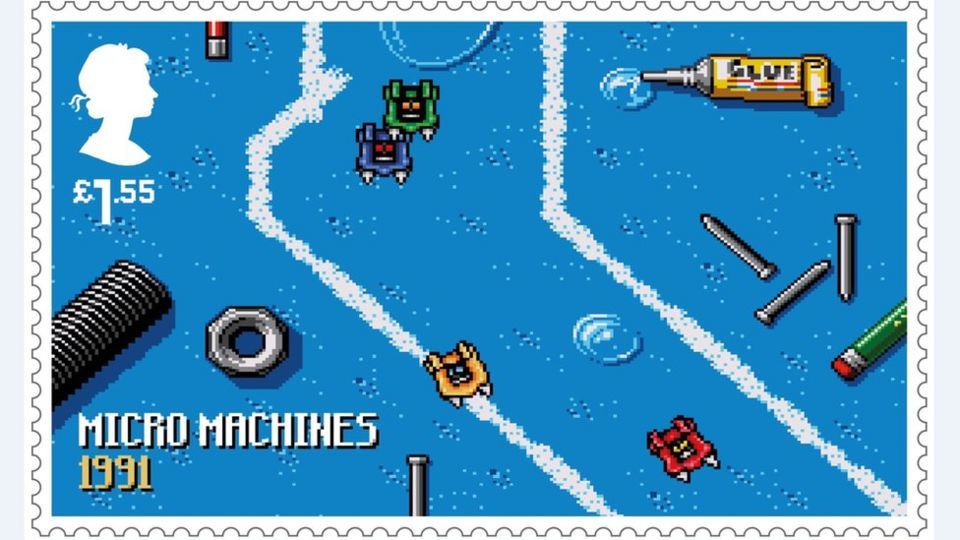
Many say that the SEGA Mega Drive version of Micro Machines is the ultimate version. It may not have been the original version of the top-down racer but boasted improved handling and 16-bit graphics.
Even now, it’s a favourite party game and one I have great memories of having epic battles with my sister. God damn those blobs of super glue!
Populous
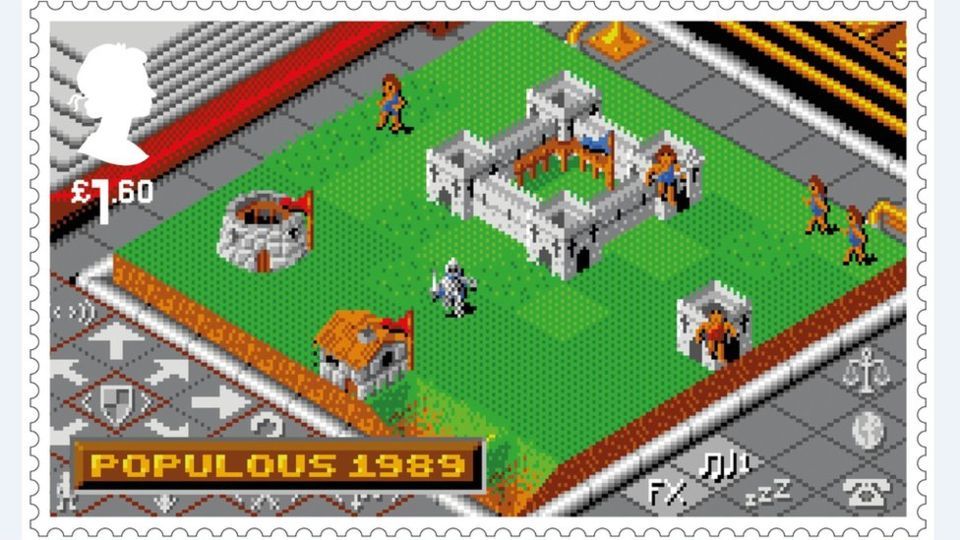
This ‘god-sim’ was the first of its kind and innovative as two Amigas could be linked for two-player gameplay.
Populous was a game I enjoyed on the Amiga and one where you could lose hours when immersed creating landscapes trying to defeat the enemy followers.
Tomb Raider
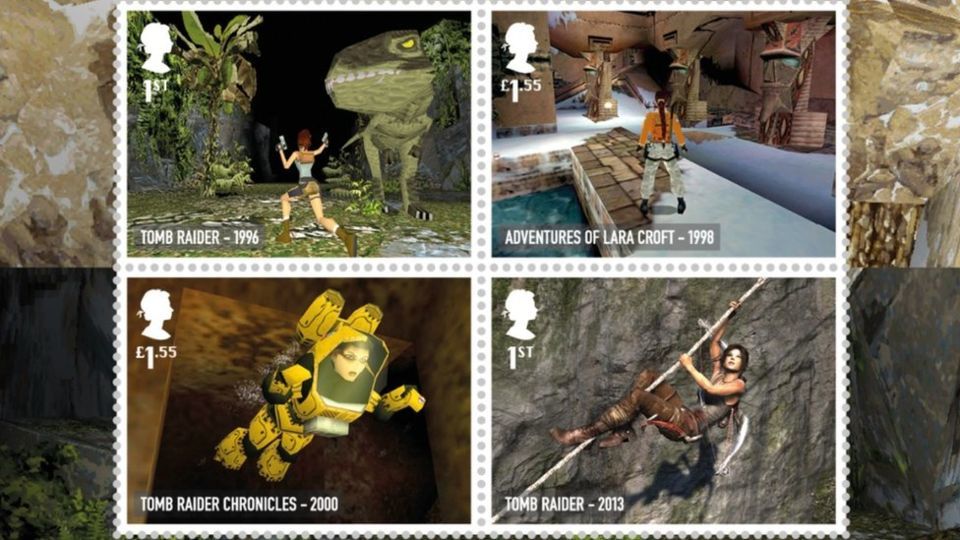
Tomb Raider and main protagonist Lara Croft arrived during the 90s – the era of Baywatch and Pamela Anderson. Previously we’d had Sonic and Mario – now we had this sexy kick-ass hero to adorn our bedroom wall.
Tomb Raider was one of the first games I got for my PlayStation and was my go-to gaming fix for many months. I still remember the first time I saw the HUGE T-Rex which was totally jaw dropping.
The Royal Mail Video Games set comes priced £14.25 on the Royal Mail website, and can be ordered at British post offices from 21st January 2020.
Images courtesy of Supple Studio.
Read more: Explore classic video game box art from the ’80s and ’90s
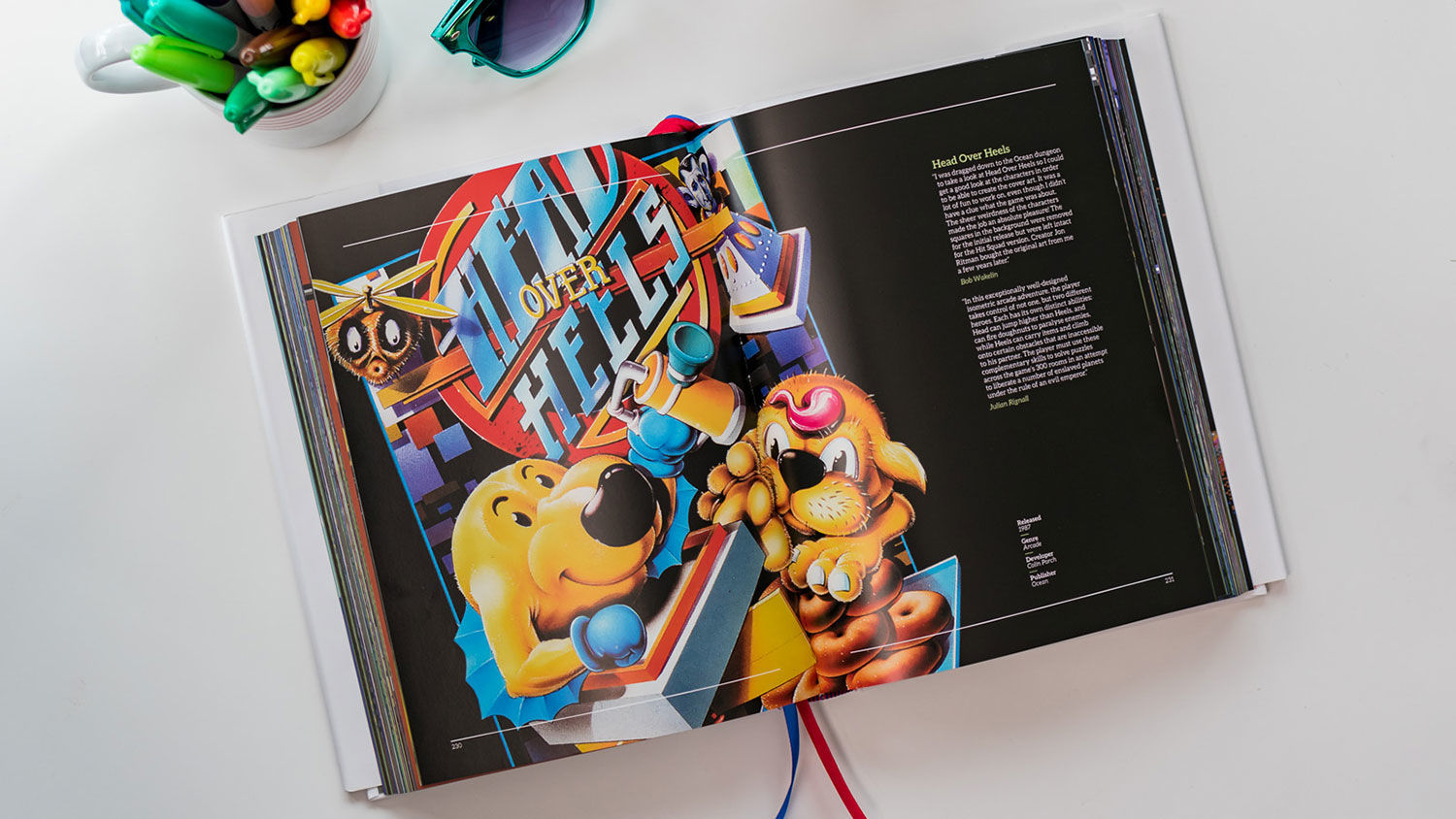
https://www.digitalartsonline.co.uk/features/graphic-design/story-behind-royal-mails-new-video-game-stamp-set/

